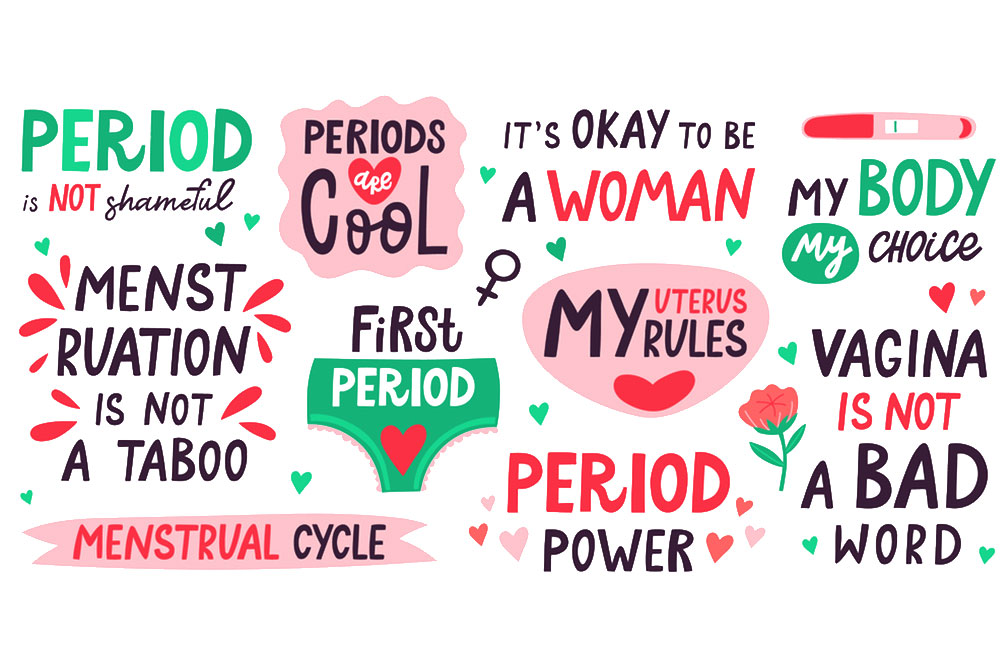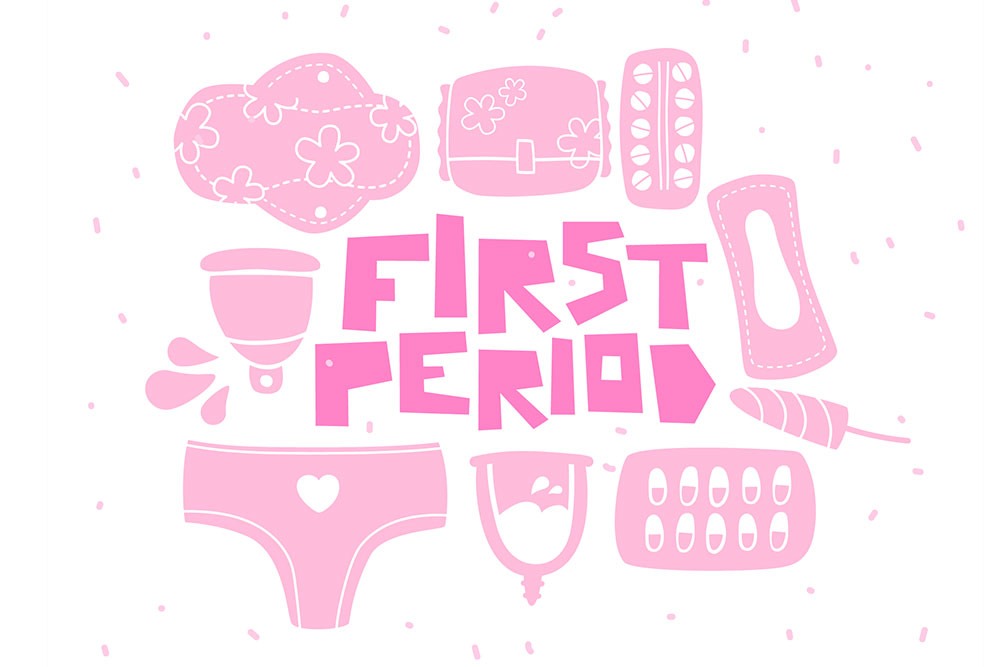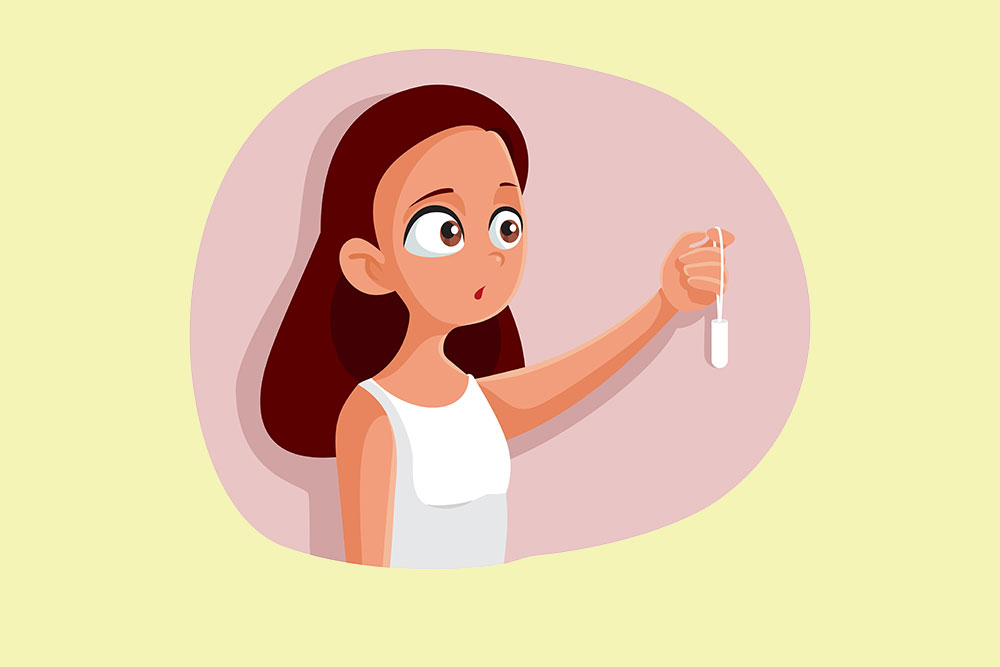So, you’ve just had your first period? Welcome to the club!
Reaching menarche—the medical term for the beginning of your menstrual cycle—is a big deal for every girl on this planet, but can be quite the scary time if you’re unprepared and caught off guard. It’s important that every girl gets all the information she needs to deal with her first period as soon as she is old enough to understand. After all, your period is the one constant you’ll have to live with until the arrival of menopause.
But, getting the correct information is just as important. With easy internet access, you might feel like going online and searching for answers yourself, but not every source is equally reliable. Getting incomplete or wrong information can have serious effects on your menstrual hygiene, which in turn can lead to sexual and reproductive health issues. Misinformation can also lead to stigma, low self-esteem, and a fear of engaging in normal activities when you are on your period. There are so many myths and regressive traditions around menstruation that it’s quite easy for you to fall into this trap, and remain stuck for life.
To prevent this from happening, we talked to Dr Asha Dalal, the director of the department of obstetrics and gynaecology, Sir HN Reliance Foundation Hospital and Research Centre, Mumbai. Here’s everything she believes a girl on her first period should know.
What is menstruation?
“Menstruation is the cyclical bleeding seen in a girl at regular intervals also called period,” Dr Dalal says. “The first bleeding or period experienced by a girl is called menarche. This usually starts by the age of 12- 13 years, but it may start earlier by 10 years or later till 16 years.”

How does menstruation occur?
To understand this, you must know the anatomy and function of the female genital tract. “All girls have a uterus, which is a pear-shaped organ in the pelvis. It is the lining of this which is shed at intervals,” Dr Dalal explains. “Attached to the uterus on either side are two tubes, called the fallopian tubes, and two ovaries. The ovaries produce the female eggs called ova. These eggs are carried by the tubes to reach the uterus.”
It’s important to note here that a woman is born with all the eggs her ovaries will release in a lifetime. Once this egg is released, it begins a phase of the menstrual cycle which is known as ovulation. The egg waits to meet a sperm, while the uterus prepares itself by creating a thick lining. If the sperm does arrive (through sex or any artificial means) and manages to fertilise the egg, then it results in pregnancy. If there is no sperm within the ovulation period then the egg and the uterus’ lining are shed through the mouth of the uterus, and exits the body. This shedding or bleeding is known as your period.
How do you know when you’ll reach menarche?
When a girl will get her first period depends entirely on her individual growth and development. “A period usually starts about two years after breast development is seen,” Dr Dalal says. “Before or around this time, you will see secondary sexual characters develop, like pubic and axillary (underarm) hair. You may also get a whitish discharge. Don’t worry. It is normal.”
What is a normal cycle?
A normal menstrual cycle starts on the first day of your period, and there are many phases like the follicular phase and ovulation. “Normally, a menstrual cycle is of 28-30 days,” Dr Dalal explains. “But if you get a period anywhere from 21 to 45 days, it is considered normal. If you get a period in less than 21 days or more than 90 days you need to see a doctor.”

What are the implications or reasons for an irregular cycle?
Dr Dalal explains that irregular cycles are common during the first few years after menarche. “Very often, for the first few years, cycles are very irregular, and may come anywhere from 15 days to more than three months. This is normal and does not require any treatment, unless the bleeding is very heavy. In this case, you may have to consult a doctor,” she says.
The most common causes of heavy bleeding coupled with irregular periods during these early years is polycystic ovary syndrome (PCOS), but the chances of this issue showing up before you turn 18,are low. It’s also important to note that stress and trauma can also cause irregular periods.
What is menstrual hygiene?
Menstrual hygiene management, or menstrual health and hygiene, is a key part of women’s health, and every girl should know the basics. Dr Dalal explains that, medically, menstrual hygiene is maintained “when women and adolescent girls use a clean material to absorb and collect blood, which can be changed in privacy as often as needed, along with easy access to facilities to dispose of this material, and to use soap and water to keep vagina clean.”
“In a country where social norms and taboos are associated with menstruation, a lack of toilets and inadequate water makes it difficult for many women to be able to follow adequate menstrual hygiene management,” she says. “Lack of these facilities often prevents adolescents from attending school. You see, the ability to maintain proper hygiene is linked to good health, well-being, gender equality, education, empowerment, and rights.”

What to use to maintain menstrual hygiene?
Dr Dalal explains that you can use a variety of menstrual hygiene products, most of which can be availed from medical stores and even online stores today. “You can use sanitary pads or sanitary napkins, which need to be changed as frequently as required, and disposed of correctly,” she says. “Tampons, which are absorbent material tubes to be inserted in the vagina, are another option. These need to be removed at regular intervals. Never keep it overnight and forget about it, as it can cause toxic shock syndrome.”
“Menstrual cups are plastic cups, which are soft and inserted in the vagina to collect blood. They need to be removed and emptied at regular intervals,” Dr Dalal says, adding that menstrual cups need to be washed with soap and water to keep clean. “Good for older adolescents and all women, they are reusable and help prevent a lot of plastic waste,” she explains.
If plastic waste is something that worries you, then Dr Dalal recommends you get reusable pads which can be washed easily. But when it comes to cleaning your vagina, don’t just go out and get anything to clean it with. “Remember, only soap and water is good,” she says. “No douches. No matter how fancy, they are unnecessary and can cause harm.”
What problems can an adolescent face during periods?
Besides irregular periods, Dr Dalal explains that the following problems can show up during the early years after menarche:
1. Pain during periods, also called dysmenorrhea. This is normally treated with an antispasmodic or NSAIDs, but if the pain is unbearable, you should consult a doctor without delays to check for PCOS.
2. Premenstrual syndrome, or PMS, with associated bloating and mood swings. For this, diet and exercise is recommended. Do visit a doctor to get treated for PMS according to your own, individual needs.
Dr Dalal recommends that you should visit or consult with a gynaecologist after your first period, and continue this practice regularly throughout your life. This can help you keep a check on your menstrual health and ensure that everything is okay.